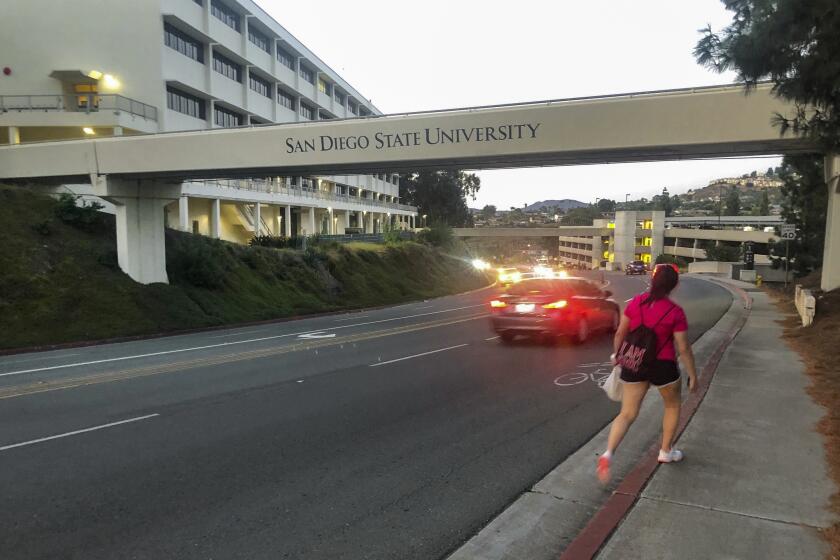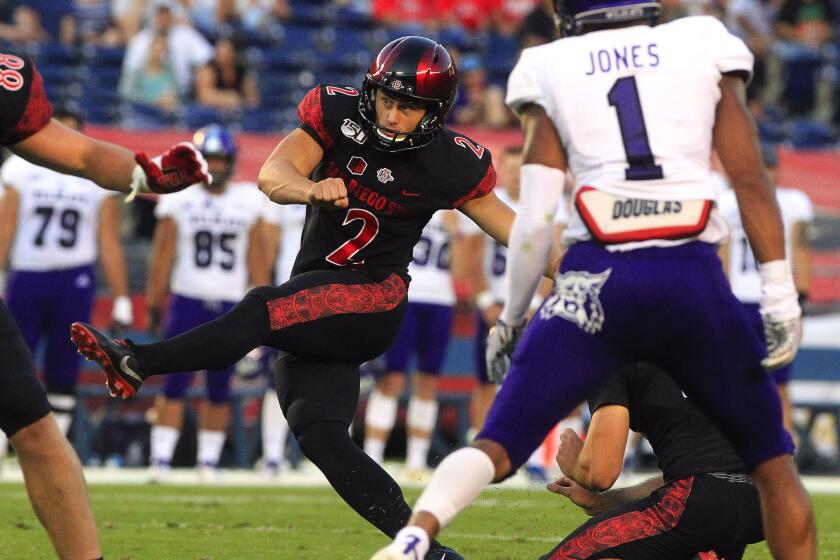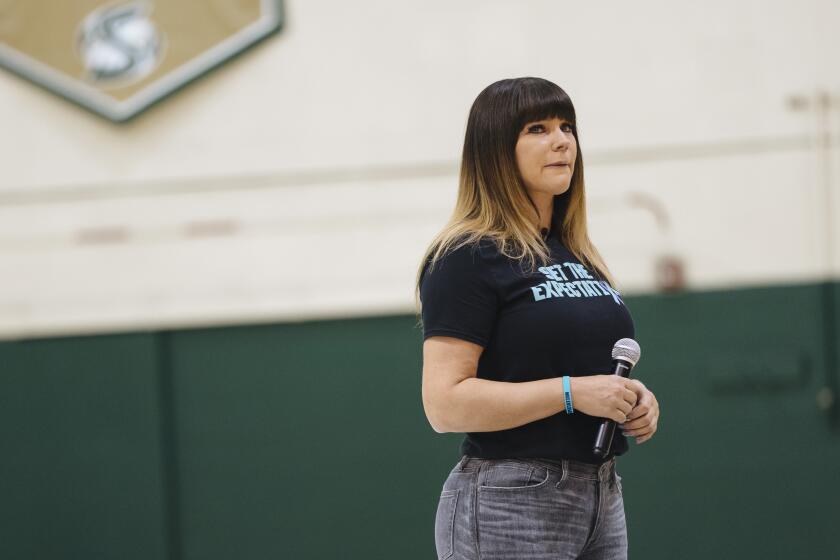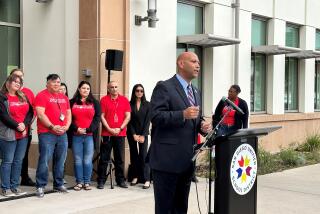SDSU president defends decision to defer rape allegation to San Diego police

San Diego State President Adela de la Torre told student government leaders Wednesday that the university was told by police “not to be involved” in an investigation into a rape allegation against SDSU football players.
- Share via
San Diego State President Adela de la Torre defended her decision to defer an internal inquiry into a rape allegation made against some of the school’s football players, saying Wednesday that the best thing to do was let San Diego police take the lead in the investigation.
The university had little choice in the matter, De la Torre said, telling a group of student leaders that “we were informed by the San Diego Police Department not to take the lead, not to interfere, not to be involved, in order to protect the criminal investigation process.”
“Had we chosen to do an investigation at that moment, we would’ve likely removed any chance at that time for a successful criminal process,” she said, adding that “there has never been a coverup” by the university.
Her remarks came less than a week after the young woman in the case filed a lawsuit in San Diego County Superior Court claiming that three SDSU football players gang raped her Oct. 16 at an off-campus party when she was 17 years old.
Lawsuit accuses star punter Matt Araiza and two former San Diego State teammates of gang rape of a 17-year-old girl.
Police have been investigating for the last nine months and recently handed the case to the district attorney’s office, which is reviewing it for possible charges.
No one has been arrested, and police have not named any suspects.
The lawsuit identified the players as Zavier Leonard, Nowlin “Pa’a” Ewaliko and Matt Araiza, who went on to the NFL.
Araiza’s attorney has said that the allegations against Araiza are false, and attorneys for the other two men have not offered detailed comments but cautioned against jumping to conclusions this early in the inquiry. Araiza was released from the Buffalo Bills last weekend, and Leonard was cut from San Diego State’s roster. Ewaliko left the team before preseason practice.
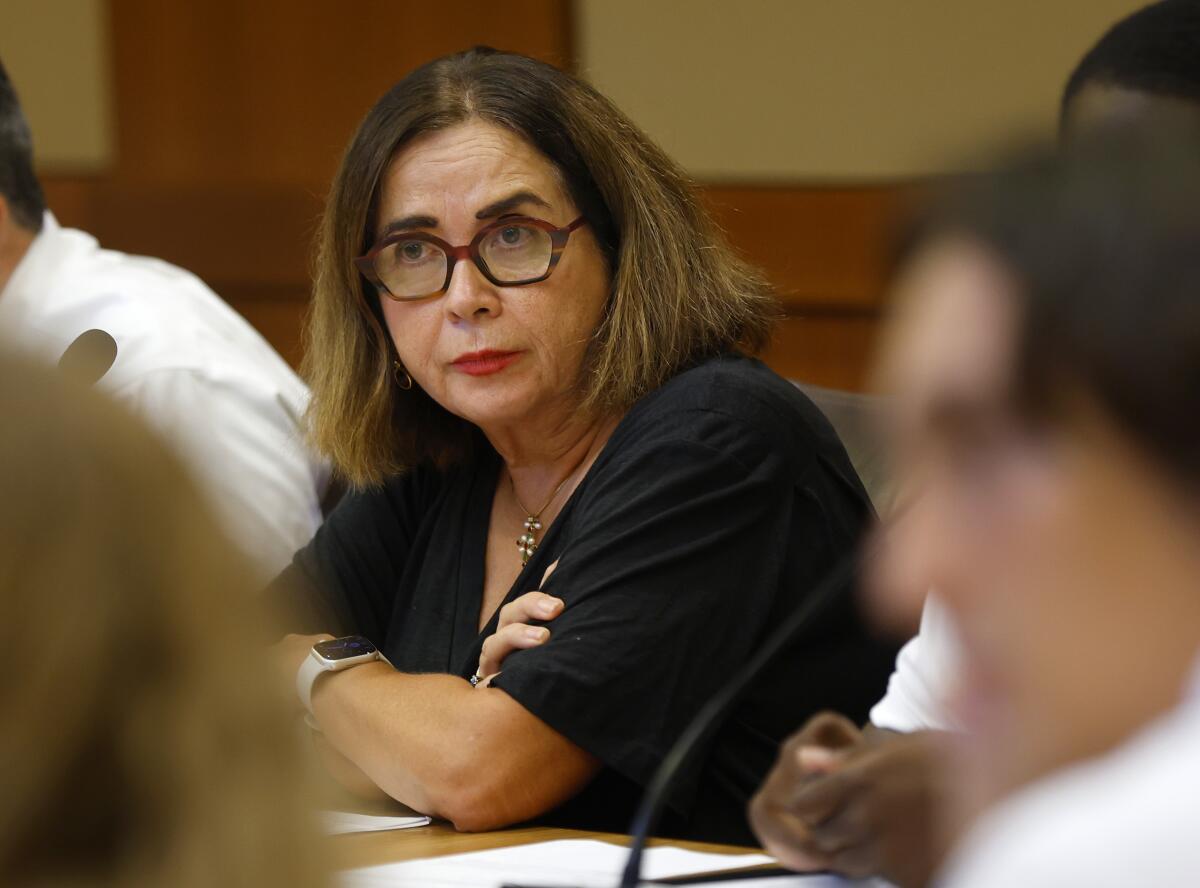
The allegations were first made public in June, when the Los Angeles Times reported that student-athletes at SDSU were abuzz over rumors that as many as five players had raped an unconscious girl. Now 18, the young woman later detailed the accusations in interviews with media.
The controversy intensified Monday when Brady Hoke, SDSU’s head football coach, and John David Wicker, the school’s athletic director, held a news conference and denied that the university had ignored the allegations.
Wicker said it is “absolutely not true” that SDSU tried to hide the matter. “We will hold any student and coach, any staff member ... responsible for anything that is confirmed and adjudicated,” he said.
Earlier in the news conference, he and Hoke walked out, trying to shut down questions by reporters. Wicker later came back and addressed that matter.
The exchange came as SDSU is preparing to play its first football game Saturday at the recently completed Snapdragon Stadium in Mission Valley. This also comes less than 10 days after SDSU began the fall quarter.
A lawyer for the woman who alleges she was raped by Araiza and two San Diego State football players publicly released excerpts of her diary.
Word spread Wednesday that De la Torre, who became president in 2018, would discuss the controversy with Associated Students, a campus government group.
De la Torre began by telling the students: “The issue [of] sexual assault, sexual violence, is very, very present. It is something that I have personally experienced, is something that lives with me day to day, and something that informs how I feel about this issue.”
She did not elaborate on her own experience.
De la Torre then said it’s important for her to be circumspect about the rape allegations, noting, “The hardest thing to do for a leader, in my opinion, is when your own passion and personal involvement oftentimes wants to guide, which is your heart, but then you also have to balance it with the mind, your analytical ability to look at information in the context of what is best for the organization.”
Brenda Tracy, a college campus gang-rape survivor, speaks to universities about recognizing and combating gender-based violence.
She acknowledged that the university is conducting its own investigation, now that police have finished theirs. But she stressed that the university doesn’t have criminal prosecution powers.
“The district attorney will determine what the charges are and then we will move forward,” De la Torre said.
“Our legal counsel has reached out to the D.A. to ask when is there going to be some resolution. [Because] we would all like resolution and we are waiting.”
De la Torre declined to answer questions from the media, saying through a spokesperson that she wanted to focus on Associated Students, the host of the meeting.
More to Read
Sign up for Essential California
The most important California stories and recommendations in your inbox every morning.
You may occasionally receive promotional content from the Los Angeles Times.
